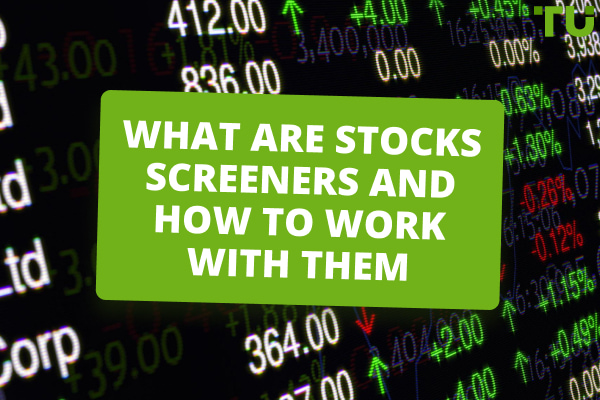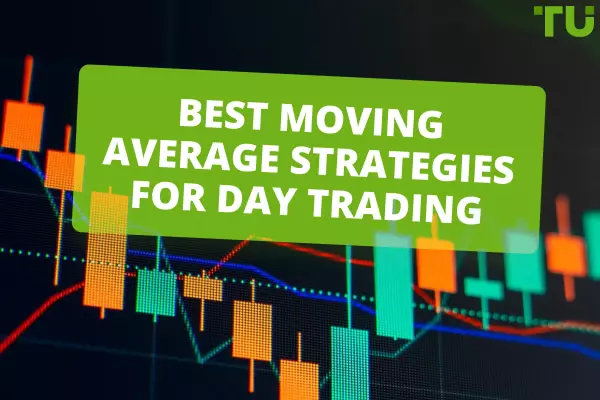10 News That Most Affect the Forex market
Discover the 10 crucial news events that impact the Forex market the most like Gross domestic product (GDP) Inflation, Unemployment, Interest rates, central bank announcements, Trade balance, Elections, Changes in government policy, Indicators, Agency ratings, and Natural disasters.
News events drive the entire Forex market, and what these news events are is what we are going to explore in this article. By the time you've read through, you'll understand why keeping your finger on the pulse of these events is a key factor in your trading success.
Many Forex traders seek methods to stay on top of these ever-changing news events. Well, it becomes simpler by using the Forex economic calendar. If you know the role of the economic calendar in keeping you updated in the information environment would help you make efficient trading decisions.
Do you want to start trading Forex? Open an account on RoboForex!Gross Domestic Product (GDP)
GDP measures a country's economic output and growth. When GDP data is released, it can impact a currency's value significantly.
Its economic data is highly significant in the forex market. GDP figures are used as an indicator by fundamentalists to measure the prevalent health and potential development of a country. Therefore, greater volatility in the Forex market is closely observed during the GDP release.
Inflation
Inflation measures the increase in prices over time. High inflation can erode a currency's purchasing power.
If a country experiences high inflation, such as 10% annually, while its trading partners have low inflation rates, foreign investors may pause to hold that country's currency. This can lead to a diminishment of the currency as investors aim for more stable assets.
Unemployment
High unemployment rates indicate economic distress, which can affect currency value. If a country reports a sudden increase in unemployment, it may suggest economic instability. Investors may move their funds to more secure currencies, causing the affected currency to depreciate.
Interest Rates and Central Bank Announcements
Shifts in interest rates and central bank policies influence currency markets in a greater volume. If a central bank raises interest rates to combat inflation, it can attract foreign capital seeking higher returns. This demand for the currency can lead to appreciation. Similarly, if rates are cut to stimulate economic growth, the currency may depreciate.
Trade Balance
A trade surplus (exports > imports) or deficit (imports > exports) affects currency value. If a country invariably has a trade surplus, it means foreign demand for its goods is high, leading to increased demand for its currency. This can cause currency appreciation. If it is a trade deficit, then it may lead to depreciation.
Elections
Political events like elections, especially in developed countries, can introduce uncertainty, impacting currency markets. In the run-up to an election, if a candidate with policies viewed favorably by investors gains traction, the currency may appreciate due to increased confidence.
Changes in Government Policy (Taxes)
Changes or modifications in tax policies can affect a country's attractiveness to investors. If a government cuts corporate taxes to attract foreign investment, it can lead to a stronger currency as more businesses invest in the country. Tax hikes may deter investment, leading to currency depreciation.
Indicators (PMI, Retail Sales, Production)
Economic indicators provide insights into a country's economic health. If Purchasing Managers' Index (PMI) data shows strong manufacturing activity, it suggests a robust economy, attracting foreign investments and leading to currency appreciation. Poor retail sales or production figures can lead to depreciation.
Agency Ratings
Rating agencies assess a country's creditworthiness, affecting investor confidence. These agencies rate the country based on its creditworthiness. If a country's credit rating is upgraded to AAA from AA, it signals fiscal responsibility, bringing in foreign investments. This can lead to currency appreciation. If the rating goes down, the value might face a downturn.
Natural Disasters
Natural disasters can have short-term and long-term effects on a country's economy. Immediate impacts may include infrastructure damage and supply disruptions, which can weaken a currency.
For example: After a cyclone hits China (Beijing), the Chinese Yuan may temporarily weaken due to the economic fallout. Long-term recovery efforts and insurance payouts can impact a currency's value in the months following a natural disaster.
News events present tremendous opportunities or potential pitfalls, making it essential to be well-prepared and adaptable in your trading strategy. By understanding how economic indicators, political developments, and global events influence currency values, you can make more informed decisions and enhance your trading in the Forex market.
Best Forex brokers 2024


FAQs
What Is "Buy the Rumor, Sell the News" Trading Strategy?
"Buy the Rumor, Sell the News" is a trading strategy where traders anticipate market movements based on rumors or speculation, and then sell when the actual news is announced to capitalize on price reversals.
How do you trade news on Forex?
Trading Forex news involves adapting your strategy to respond to market volatility during news releases, either by staying out of the market, widening stop losses, or trading after the initial news-driven price movement.
How to Manage Risk When Trading Forex News?
To manage risk in Forex news trading, using techniques like setting stop losses, avoiding over-leverage, diversifying your trades, and staying informed about upcoming news events.
What Are the Best Currency Pairs for News Trading?
Major currency pairs like EUR/USD, GBP/USD, and USD/JPY are popular for news trading due to their liquidity and the extensive information available about them in the forex economic calendar.
Glossary for novice traders
-
1
Broker
A broker is a legal entity or individual that performs as an intermediary when making trades in the financial markets. Private investors cannot trade without a broker, since only brokers can execute trades on the exchanges.
-
2
Trading
Trading involves the act of buying and selling financial assets like stocks, currencies, or commodities with the intention of profiting from market price fluctuations. Traders employ various strategies, analysis techniques, and risk management practices to make informed decisions and optimize their chances of success in the financial markets.
-
3
Investor
An investor is an individual, who invests money in an asset with the expectation that its value would appreciate in the future. The asset can be anything, including a bond, debenture, mutual fund, equity, gold, silver, exchange-traded funds (ETFs), and real-estate property.
-
4
Volatility
Volatility refers to the degree of variation or fluctuation in the price or value of a financial asset, such as stocks, bonds, or cryptocurrencies, over a period of time. Higher volatility indicates that an asset's price is experiencing more significant and rapid price swings, while lower volatility suggests relatively stable and gradual price movements.
-
5
CFD
CFD is a contract between an investor/trader and seller that demonstrates that the trader will need to pay the price difference between the current value of the asset and its value at the time of contract to the seller.
Team that worked on the article
Upendra Goswami is a full-time digital content creator, marketer, and active investor. As a creator, he loves writing about online trading, blockchain, cryptocurrency, and stock trading.
Dr. BJ Johnson is a PhD in English Language and an editor with over 15 years of experience. He earned his degree in English Language in the U.S and the UK. In 2020, Dr. Johnson joined the Traders Union team. Since then, he has created over 100 exclusive articles and edited over 300 articles of other authors.
Mirjan Hipolito is a journalist and news editor at Traders Union. She is an expert crypto writer with five years of experience in the financial markets. Her specialties are daily market news, price predictions, and Initial Coin Offerings (ICO).









